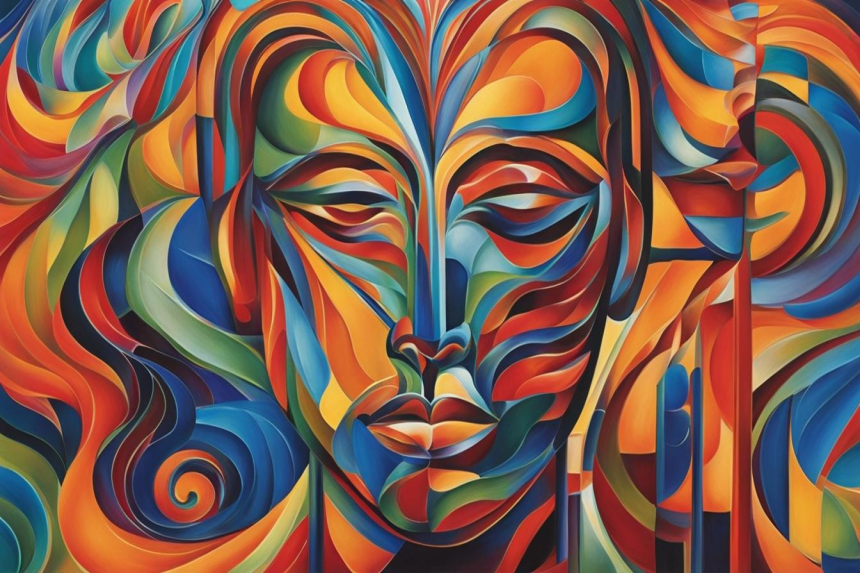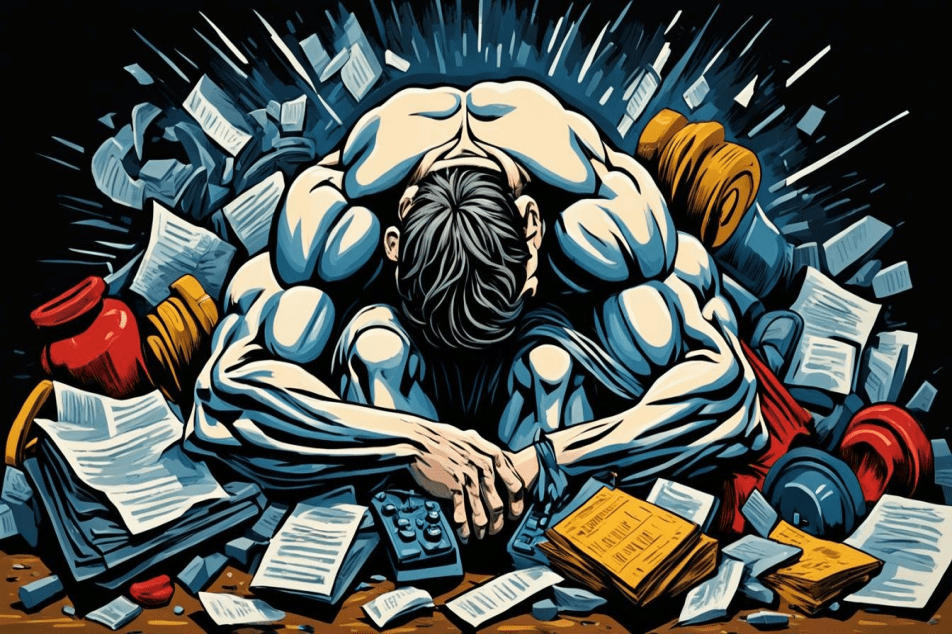
Recent news about social media lawsuits focuses on TikTok and its impact on mental health. The platform is facing serious charges, with more legal actions being taken against it. Critics argue that TikTok takes advantage of the psychological vulnerabilities of young users, leading to issues like poor sleep, depression, and other concerns.
The lawsuit is a big deal in digital law. It demands high financial penalties for each wrong done. With a potential ban on January 19th, 2025, it shows the worry over social media's negative effects on teen mental health.
California's Attorney General Rob Bonta, along with others from states like New York, is leading this fight. They argue TikTok broke California's consumer protection laws. This issue sparks a lot of debate about if social media causes bad mental health in young people.
There's strong proof linking long screen time to mental health issues in young kids. The lawsuit points out that kids under the age restriction still get on the app. It also mentions how race can affect how screen time impacts mental health.
The case against TikTok is not unique. It recalls previous cases against big companies like Meta. This brings up a major question: What's the real cost of our online habits, and who should fix the problems they cause?
TikTok's Alleged Psychological Exploitation and Legal Repercussions

A group of attorneys general from New York, California, and Washington has taken legal action against TikTok. They express deep concern over the mental health impacts of TikTok on young users. These concerns have sparked discussions on the platform's practices and its attempt to keep users constantly engaged.
Attorneys General Unite Against TikTok's Practices
This legal action involves more than twelve states and the District of Columbia. It's a bipartisan effort. They argue that TikTok's design encourages addiction in young users. This happens despite supposed safety measures, which they find easy for minors to bypass.
Damaging Claims in the Filed Lawsuits
The lawsuits against TikTok are similar to those once filed against tobacco and pharmaceutical companies. They criticize TikTok for ignoring user wellbeing for profit. They point out issues like mishandling private data of minors and not enforcing age restrictions. Lawsuits also mention the risks in TikTok's live-streaming features, lacking protection against misuse on teenagers.
Lawsuit Objectives and Potential Penalties
The suits aim for both court orders and big financial penalties, up to $7,500 per violation. They want TikTok to change how it operates, focusing more on user safety and mental health. This action is seen as a step towards changing how social media tackles user interaction and addiction.
TikTok Lawsuits Over Mental Health: State-Level Actions

At the state level, efforts are key in tackling the mix of digital platforms and mental health issues. Updates on the TikTok lawsuit show a rising worry about how the platform manages user safety and data privacy, especially for young people. California and New York are leading the charge in lawsuits concerning TikTok's impact on mental health.
- California has made a big step with an 81-page complaint against TikTok. It looks closely at how TikTok runs and criticizes its safety features for being insufficient in protecting young users.
- A study from UCSF links long screen times on TikTok with more mental health issues in young teens. This finding adds to the growing concerns.
- The effect of TikTok on mental health also seems to vary by race, affecting Black, Asian, and white users differently. This adds complexity to its overall influence on the mental health of young people.
A bipartisan group of prosecutors is driving these state actions. They are united against what they see as careless practices by digital platforms. Remarkably, 67% of U.S. teenagers use TikTok, according to a 2022 Pew Research study. This points to the powerful influence the platform has on their minds.
- The legal fights could lead to a TikTok ban unless its ownership changes. This possible Supreme Court case stresses the importance of digital behavior in today's ruling.
- Legal claims accuse TikTok of acting like a 'virtual strip club without age limits' and not keeping kids safe from bad content. These issues add to the complex legal situation.
- Various states and bodies claim together that TikTok's features are addictive and can cause mental and physical harm. This leads to serious problems like depression, anxiety, and body dysmorphia for its users.
The goal of this state-level scrutiny is to protect mental health and promote safe digital activity. By holding platforms like TikTok accountable, these lawsuits may create new rules for all digital platforms. These would guide how technology, law, and mental health protections interact in the future.
The Impact of TikTok's Features on Youth Mental Health

Recently, people are looking closely at how TikTok affects young people's mental health. Social media and lawsuits about mental health show the big influence on youngsters. TikTok's features that keep users coming back are causing worry. Parents, mental health experts, and lawmakers are all concerned.
Content Consumption Patterns and Their Consequences
TikTok's 'For You' page makes teens watch videos for hours on end. This can make them lose track of time. Research shows this habit could lead to mental health problems, like anxiety and depression. These are key issues in lawsuits claiming TikTok cares more about keeping users online than their well-being.
Design Features Accused of Inducing Addiction
TikTok's design, including instant alerts and content that an algorithm picks out, is meant to draw in teens. Features like 'likes' and 'shares' also add to the appeal. They say these aspects make TikTok hard to resist. Now, this issue is at the heart of legal actions. People accuse TikTok of purposely getting kids hooked.
Studies Correlating Screen Time with Mental Illness Symptoms
Research links too much screen time with worse mental health in kids. Important findings from places like UCSF support this idea. These studies fuel discussions and legal action to deal with TikTok's mental health effects. As these court cases go on, this research is key to understanding how social media affects kids.
The talk about TikTok and kids' mental health is growing. Knowing how they connect is crucial. Keeping an eye on legal cases will help see how online platforms protect young people's minds.
California Takes the Helm in Social Media & Mental Health Litigation

California is leading the fight against social media's harmful effects on kids. It's introducing strict laws to stop minors from being hurt by online sites. This effort is key to tackling the growing problem of how social media affects our young people's mental health.
California's Aggressive Stance on Digital Platform Accountability
California is taking bold steps against companies like TikTok. Critics say TikTok's addictive content harms mental health. This fight shows how states can make sure companies are responsible for keeping young users safe.
Legal Arguments Regarding User Information and Misleading Safety Features
TikTok is in trouble for not being clear about user info and having weak safety tools. This case points out these big issues. It's pushing for better protection for everyone online.
Similarities to Previous Legal Actions Against Meta Platforms
California has sued Meta Platforms before, for similar reasons. These lawsuits were about how their products hurt kids' mental health. California is consistently working to fix the problems at the crossroads of tech and child welfare.
Statistics from the CDC show a sad trend among high schoolers. Many feel sad and hopeless because of too much social media. This makes California's strong actions even more important. They might inspire other states to tackle these tech problems too.
TikTok's Defense Amidst Soaring Legal Pressures

TikTok is facing more legal problems than ever. Yet, it's fighting back by focusing on keeping its users safe, especially the young ones. Amidst a lot of concerns, the platform is taking steps to show how serious it is about digital safety.
Even with the threat of being banned in some places, TikTok says it's doing a lot to protect its users. It's proud of its efforts and considers them top-notch in the industry.
Here are the key points of TikTok's defense plan:
- It has worked for over two years with lawyers to make the app safer. This is despite more legal challenges now.
- There's a special Trust and Safety Team in California. This team works hard to keep the app safe and protect younger users.
- TikTok believes it's wrong to say they're not keeping users safe. They think these claims don't have evidence.
The future of TikTok could depend on how it deals with these legal issues. It's trying to show it cares about its users and keeping them safe. This effort is to keep the trust of its users and stay in business around the world.
Nationwide Investigation and Legal Standpoints Against TikTok

More and more, TikTok finds itself under legal scrutiny. State attorneys general have started a major lawsuit against the platform. Leading this charge is Washington Attorney General Bob Ferguson. He's tackling the platform for creating an addictive space, mainly for kids.
Ferguson is known for taking legal action against Meta before. This time, he's not alone. A group of 13 bipartisan state attorneys general back him up. They argue that TikTok doesn't do enough to protect its young users. This is worrisome since reports link a lot of social media use to mental health issues, especially in teen girls.
The goal of suing TikTok isn't just about pointing out the bad. They want to force TikTok to take steps like limiting screen time and checking ages better. Illinois Attorney General Kwame Raoul, along with others, seeks fines and court orders against TikTok. They're worried about the mental health of users and their safety. Interestingly, 6.2 million people in Illinois use TikTok. That's nearly half the state! Many are young people who might see harmful content.
It's not just an issue in the states; it's worldwide. Many countries are putting limits on TikTok because they're worried about safety risks. More than a dozen American states are suing TikTok, showing a big effort to protect people's mental health and encourage safe internet use. They hope this lawsuit leads to real changes at TikTok. It might even push for better rules and care across all social media.
Do you think TikTok can be reformed to better protect mental health, or is the impact on users just an inevitable part of social media?









